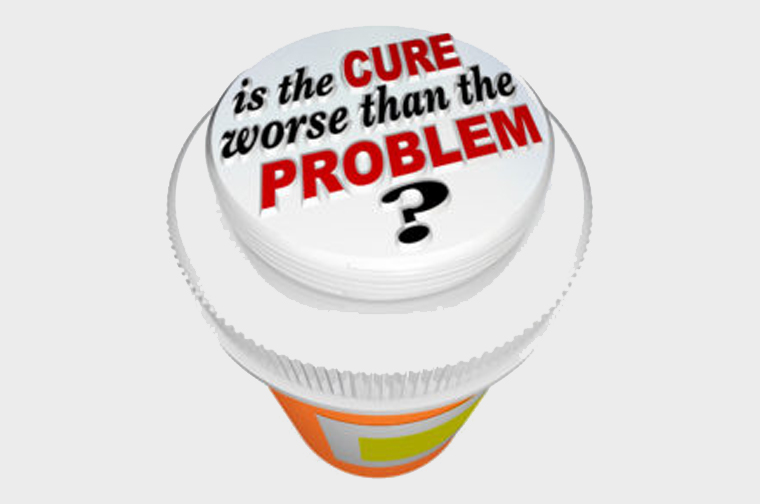This blog was inspired by one of my patients who, after taking Nexium, an acid-blocking medication for a couple of weeks, came to see me terrified by the potential side effects.Basically, she wanted to discontinue it as soon as possible but in a safe way.
From the perspective of integrative medicine, the problem with GERD is not that there is too much acid, but that the acid is in the esophagus rather than the stomach. PPIs block the secretion of acid, thus eliminating symptoms, but they do not address the underlying problem of regurgitation of the gastric lumen contents into the esophagus. In other words, PPIs don’t cure GERD; they only treat the symptoms so remember that acid-reducing medication is designed for symptom control.
Your goal should be to take the least potent medication at the lowest dose to control your symptoms.
Here are few important points to consider:
- PPIs medications (most potent, but takes 48-72 hours to have its effect)-Nexium, Protonix
- H2 blockers (less potent/quicker to act than PPIs)-Zantac
- Acid neutralizers (least potent/provide immediate relief of heartburn)
- reflux symptoms are so closely tied to lifestyle choices in people with mild/moderate GERD or any other stomach problems this process is most effective when combined with smart lifestyle changes.Remember that adjusting your lifestyle and controlling your weight can help reduce your need for medications.
- Do not stop your medicine for acid reflux at once. Making changes gradually will help you avoid rebound symptoms that may be worse than your actual baseline.
- PPIs long-term use may lead to serious complications, including increased risk for pneumonia and Clostridium difficile, and decreased absorption of vitamin B12, calcium, magnesium, and iron.Recent evidence is now questioning the connection between PPIs and kidney injuries.
- Despite these potential complications, PPIs are recommended in many circumstances, such as preventing gastrointestinal bleeding in elderly patients on NSAIDs. As with other medications, physicians need to balance the risks and benefits of PPIs, depending on the condition. They should also bear in mind that many patients are on PPIs with no good indication.
How to wean off your dose of acid reflux medication
The basic goals are to gradually move from:
- PPIs down to H2 blockers down to antacids,
- Wean off a high dose down to low dose,
- Frequent use to less frequent use.
Key points to remember:
- Don’t go too fast. It takes time for your body to adjust to the changes you are making, so wait at least two weeks between significant changes.
- Stop making changes if your symptoms worsen beyond your satisfaction.
- At the end of the day, a “take it when you need it” strategy is best, whether that is antacids (best), H2 blockers, or the occasional PP
- Remove any possible triggers like acidic foods and pay attention to lifestyle changes: tobacco cessation, weight loss, propping the head of the bed 4-6 inches, eating meals several hours before lying down, eating smaller meals and stress management.
- Repair your digestive tract: various herbs, and supplements before and during the weaning off period. Some of the helpful botanicals: chamomile, DGL(a type of licorice), marshmallow tea, slippery elm. Add a good quality probiotic few weeks prior to discontinuing the medication.
- Rebalance your nervous system-stress is a well-known risk factor for increased acid production and the return of symptoms. Consider acupuncture, meditation or moderate intensity exercise.
Remember, any changes to your medication should be done in consultation with your physician!




